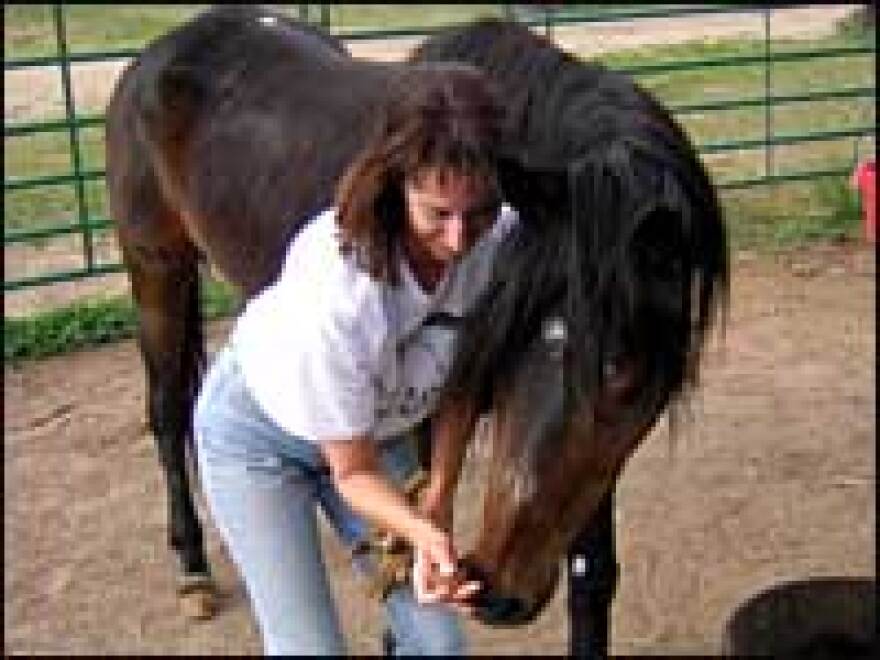
Jeff Brady, NPR /
A House bill that would effectively ban the slaughter of horses to be used for meat is receiving mixed reactions.
You can't buy horse meat in most parts of the United States, but 18 million pounds of it are exported to Europe and Asia each year. Just seven states -- Arizona, Florida, Georgia, Minnesota, New Jersey, Ohio and Virginia -- allow the meat's sale domestically.
The idea of horsemeat sickens many horse lovers, and they see a chance to finally put an end to a practice they feel is out of step with the values of most Americans.
But some people who are horse lovers support slaughter, because they believe it's a humane way to dispose of excess horses.
Copyright 2022 NPR. To see more, visit https://www.npr.org.



